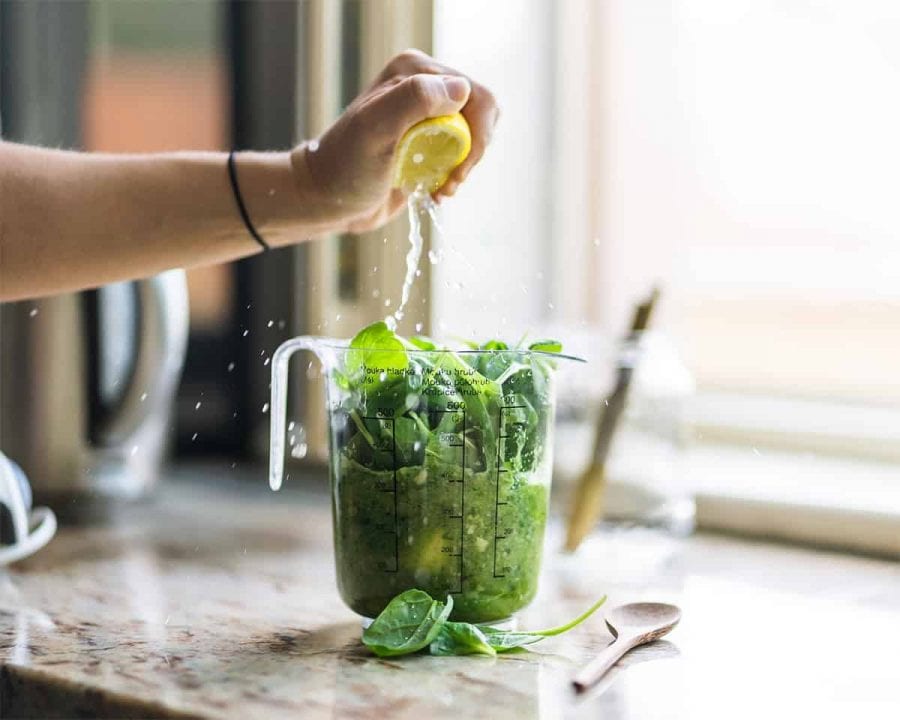Menopause is something that’s rarely talked about – until it happens. One day you’re just living your life the way you’re used to, and the next you’re forced to deal with hot flashes, achy joints, weight gain, chaotic emotions, dry skin, and a slew of other symptoms that no one warned you about.
If you go into it unprepared, the symptoms hit harder. You’re more nervous and worried because your body didn’t use to have these issues, and it takes a while until everything settles down (if it ever does). But, don’t worry. You can prevent a lot of menopause symptoms if you prepare on time. One of the crucial parts is going to be your diet, and as long as you start eating well now, you’ll have an easier time later.
Of course, genetics, physical activity, stress levels, and other factors also come into play, but for now, we’ll focus on the food alone. Here’s what you need to eat to stay healthy and thin during menopause.
Hydrate before all
Dry skin becomes a problem as we age because we slowly lose estrogen. While skincare plays an important part in keeping your face plump and moisturized, simply drinking water can help a lot, too. When we’re younger and more active we’re more likely to remember to drink our fill, but our sedentary lifestyles and reliance on caffeine tend to make us forget all about staying hydrated. If you have this kind of problem, try getting yourself a cute water bottle that you can keep on the desk at all times. It’ll inspire you to take a sip whenever you see it.
Stock up on fruits and veggies
Fruits and vegetables are low in calories and high in nutrients, which makes them perfect for premenopausal and menopausal women. Choose leafy greens such as kale and spinach, and berry fruit like blueberries, raspberries, and black currants. You should also stock up on tomatoes, carrots, garlic, green peas, sweet potatoes, and red cabbage, which are all full of vitamins and antioxidants. If you want more fruits in your diet, here are some of the healthiest: strawberries, bananas, apples, mango, grapefruit, avocado, pomegranate, and watermelon.
Care for your bone health
Osteoporosis is a common menopausal issue, but there is a way to counter it and make it less severe. You’ll need more calcium and vitamin D in your diet, and the best food to get these is dairy and fish. Drink more yogurt and milk, and try to eat fish like tuna, salmon, and mackerel at least once a week. Other vitamin D-rich foods are eggs and mushrooms.
Consider supplements
It can be a little difficult to get all of the necessary vitamins and nutrients through your diet, so sometimes the best solution is to combine good food with proper supplements. Make sure to choose proper menopause diet supplements, especially the ones containing good probiotics because this can help you heal your gut health. It’s especially useful to take probiotics if you’re looking to lose a little weight or prevent menopausal weight gain, as long as you combine this with a healthy diet.
Up your iron intake
Our iron levels tend to drop as we age, and this can lead to anemia in older women. To make sure you get enough iron for your age, eat more beans, dark leafy greens, seafood, peas, and a little bit of red meat. We say a little bit because eating red meat in excess could lead to various cardiovascular problems, so be careful. Eating red meat two-three times a week is okay, eating it more often than that could put you at a risk, especially if you’re genetically predisposed to develop heart troubles.
Toss out sugar and processed foods
Sugary and processed foods can aggravate menopause symptoms such as hot flashes and cause rapid weight gain. The best way to slim down and reduce the severity of your symptoms is to replace this kind of junk food with something healthier and more nutritious.
If you crave sugar too much to drop it entirely, rely on sugar replacements like stevia. You can make delicious sweets without using a single ounce of refined sugar. Here are some recipes.
Careful with alcohol and caffeine
Caffeine and alcohol can also aggravate menopause symptoms. You don’t have to quit them entirely, but do reduce your intake. Try not to drink more than one cup of coffee a day, or switch to caffeine-free coffee or tea. As for alcohol, a few glasses of wine weekly won’t do you much harm, but try not to drink any more than that.
Try soy for hot flashes
Some research suggests that soy-based products can help reduce uncomfortable symptoms in menopausal women. Components called isoflavones that are found in soy are said to reduce hot flashes, so try to include more soy-based products in your diet. Things like edamame and tofu are good additions to any diet.
The best way to keep the pounds off and feel better during menopause is to lead a healthy lifestyle. This involves a good diet and exercise. With these tips, you’ll know exactly what to eat to slim down and reduce unpleasant symptoms you might be feeling.
The post The Optimal Menopause Diet appeared first on Viral Rang.
This content was originally published here.







